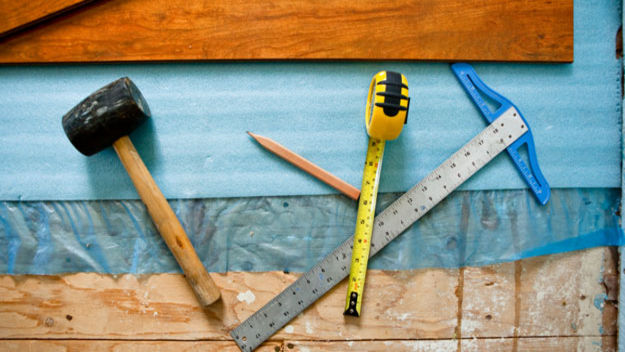It is a tried-and-tested failsafe investment formula every property investor will tell you: buy low, renovate, re-value, recycle your equity and do it over again. Renovation is the part of the equation that gets many Kiwi investors excited. Because, you know… what is it that the Mitre10 kid said? DIY, it is in our DNA?
Before you bust out the sledgehammer and crank up Bon Jovi on the radio, take some time out to think through your renovation plan. It is easy to slap on a coat of paint but renovating to add value is a lot more intellectual than you might think. Remember, you are renovating for the purpose of maximising your equity and the level of profit realised is often determined during the decision making stage before any work has began.
What Renovation Can Do For You?
Renovation, when done correctly, can increase your equity by giving you capital growth in the short term. This is particularly helpful if you have other properties that are struggling with their performance (i.e. negative cash-flow) or if the market, as well as your portfolio as a whole, has plateaued. In the long term, you are minimising the ongoing maintenance costs of the property.
How Much Do You Need To Spend?
Hard to say. The level of impact a renovation job can have on your property is dependent on the property itself. Sometimes a simple lick of paint and some new carpets can straight away increase the rentability of a property and increase your cash-flow return. Other times you are not likely to see much difference in return until you completely gut and refurbish the property.
First things first, shut off your emotions. Renovating a rental property is differently from renovating a home. The latter is often an exercise driven by emotion and dreams while the former is pure maths: whatever you put in must give you a positive return. When we are guided by emotions, we can easily lead ourselves into thinking that the more money we spend on the job, the more profit we will make. Renovation for a profit is a fine art. You are constantly treading a line between overcapitalising and undercapitalising. Overcapitalising on a renovation project is as bad as… lets just say you might as well go out onto the street and throw your cash down the drain; undercapitalising will rob you of the opportunity to have a property that performs at its maximum attracting good tenants and a steady stream of passive income.
Always consult either a renovator who specialises in rental properties or a property valuer who is an expert of the area. These people know about the true potential of a property. They can tell you at the drop of a hat how to prioritise your renovation project and which work will give you the most return on investment.
Get to know the area and the tenant demographic well. Because these are the two considerations that are most likely to define the ceiling of your renovation budget. In suburban areas that are attractive for families, make sure you have a modern kitchen and bathroom. In the city centre where renters are usually students or young professionals, make sure you have the right cables for internet and that the property is easy for your tenant to maintain.
When Do You DIY and When Do You Delegate?
It is easy enough to put in a hedge line, paint the house, and sand the floors, but make sure you delegate the job to a trained professional if you do not have the expertise to do the renovation justice. Amateur renovation jobs can often end in budget blowouts, delayed completion, endless frustration, and loss rent. If you are new to DIY renovation, double your budget and timeframe then ask yourself whether the renovation is still a worthwhile exercise.
A lot of investors make the mistake of not delegating the renovation job to a qualified tradesman. That is fine when you are a dab hand at most DIY job but it can be a real disaster if you do not know the limitations of your skills. Oftentimes hiring a professional tradesman will not only cut down on the time of the project, it will also give you access to discounted building materials.
When you are faced with a big renovation job, consider engaging a quantity surveyor who can report on how much labour and material should cost you so you have a benchmark to compare the quotes with. A project manager can take ownership over scheduling especially pushing the project along before the deadline. Make sure you surround yourself with a network of trustworthy tradesmen who you have a good relationship with. Oftentimes, the success and failure of a renovation hinges on the cohesiveness of your team. If you are just starting off and don’t know anyone, ask around APIA meetings and look on websites such as these to start building your team. Once you have found your team, the more you use them the better they will work together for you as a team. Don’t be too scared to ask for guarantees or penalty clauses to give yourself a bit more reassurance.
Budgeting
Budgeting is important. After all, if you are not able to extract at least $1.5 out of every dollar you spend on the renovation, the whole point of the exercise falls flat. Always build into your budget a 20-25% contingency expense account, you will need it.
Learn how to compare quotes and get your head around terms like ‘fixed-fee’ and ‘cost-plus’. While the former can provide you with a lot of certainty, it often comes with a built in contingency for the builder in case something goes wrong. The latter is more purse-friendly and can work well, so long as nothing goes wrong during the job.
If the job is sufficiently big and funding becomes a concern, make plans to revalue the property in appropriate times in between different stages of the renovation. That way you can partially recycle your equity during the job in order to push it to completion.
Don’t just budget for expenses, also budget for time. Each day your property is being renovated is another day you do not get any return on it. You need to have sufficient understand of the magnitude of the renovation job in order to set yourself a realistic expectation of the timeframe during which there will be no return on your investment.















Add Comment